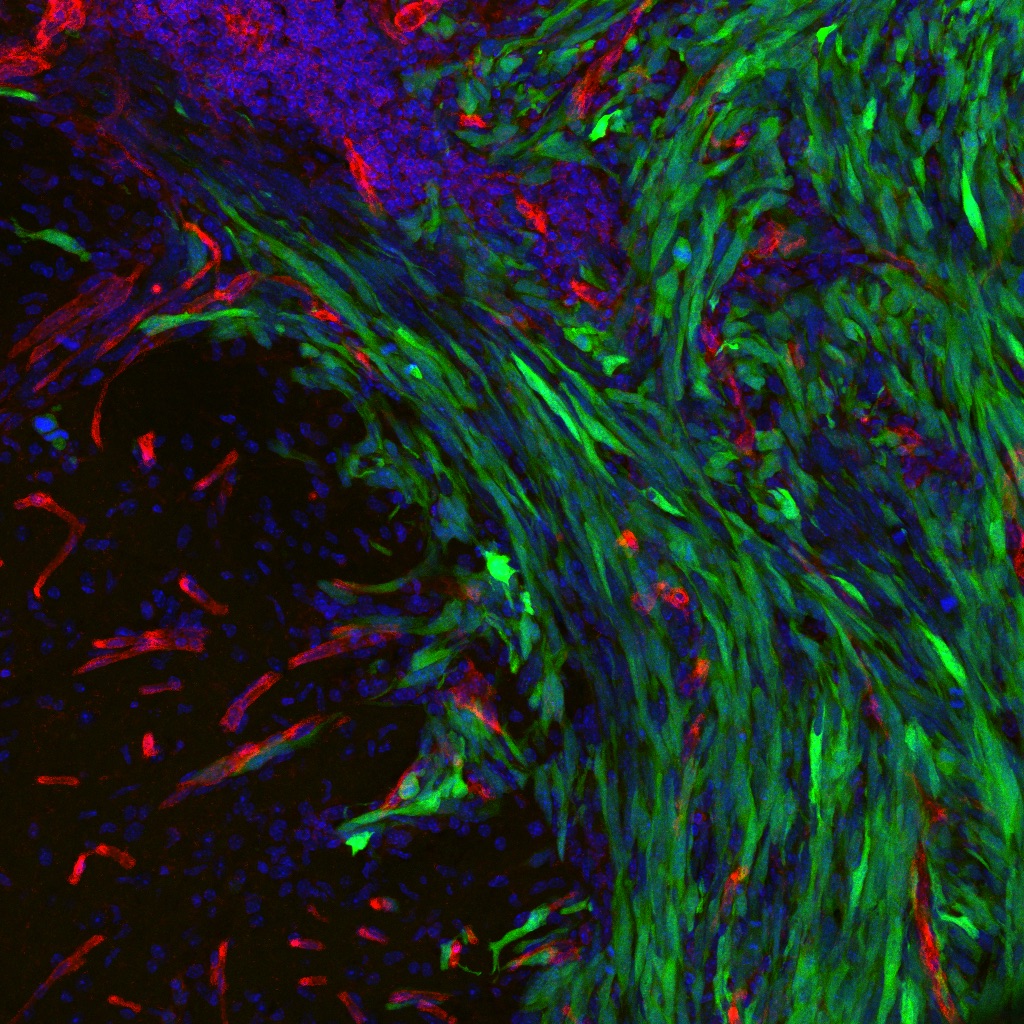By Helen Figueira
February 4, 2016
Time to read: 2 minutes
Deborah Oakley
Simona Parrinello who leads the CSC’s Cell Interactions and Cancer group has won a ‘Programme Foundation Award’ from Cancer Research UK worth £1.5 million.

Parrinello studies glioblastoma, the most malignant and common form of brain cancer. “Life expectancy is just over one year. It’s very deadly and there is no adequate treatment,” says Parrinello. “Current treatments don’t work because the tumours spread throughout the brain, and can’t be fully removed by surgery. If we can target this spread, it may be possible to make therapies more effective.”
Scientists don’t yet know how the cancer cells invade the brain in patients with this condition. Parrinello hopes to identify what makes them different from ‘normal’ brain cells, and how they interact with these normal cells to allow this rapid spread. Preliminary data from her group goes some way to identifying the roles that particular molecules play, and this data formed the basis of the CRUK award, says Parrinello.
According to CRUK, the award “allows excellent cancer researchers… to establish or further develop their independent research group.”
“The grant means that we can continue to work on cancer. Without it, we wouldn’t be able to do this work,” says Parrinello, who will receive the funding over the next six years, starting in April. “We’re going to recruit four more people and double the size of our lab.”
This follows success for James Tomlinson, a Chain-Florey Clinical Lecturer in the CSC’s Nitric Oxide Signalling group, who was awarded his first independent grant in December. The award comes from the Academy of Medical Sciences to further his research on the genetics of kidney disease.
Three further awards to CSC scientists from the Biotechnology and Biological Sciences Research Council have also been confirmed. These go to Irene Miguel-Aliaga (who leads the Gut Signalling and Metabolism group), Andre Brown (who leads the Behavioural Genomics group), and Christian Speck (who leads the DNA Replication group).